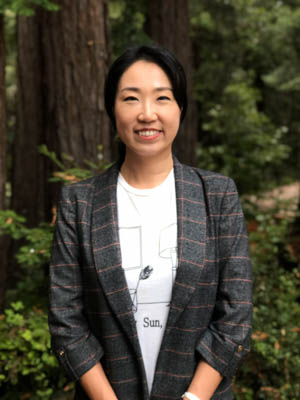The University of California, Santa Cruz recently received funding through the Public Interest Technology University Network (PIT-UN) to advance two innovative social change programs that are harnessing the power of technology for the benefit of society.
The Research Center for the Americas will receive $180,000 to support the Human Rights Investigations Lab, which trains students to document international conflicts using open-source internet investigation techniques. And the Everett Program, a student-led initiative pursuing technology and social change work since the late 1990s, will receive $90,000 to develop online teaching modules and curriculum disseminating best practices for supporting student-led tech projects.
The Human Rights Investigations Lab, founded in 2019, is a relatively new research project that's already generating global impact. Their PIT-UN funding, with added support from the Division of Graduate Studies and The Humanities Institute, will bring in more experts to mentor students across fields ranging from digital verification to cybersecurity to law, depending on the needs of a particular investigation.
Sylvanna Falcón, the lab's director, says this grant will further enrich the tech proficiency students gain through the program, which has served them well not only in their human rights investigations, but also in the job market and everyday life.
"The digital literacy skills students have developed have helped them engage on this massive platform of the internet in a responsible way," Falcón said. "My students tell me they'll never look at the internet the same way again."
Both PIT-UN funded projects at UC Santa Cruz are geared toward empowering students from non-STEM fields to apply technology effectively, and both aim to diversify tech leadership.
"We work with populations that have been marginalized from STEM education to bring tech tools for them to express themselves, curate information, and create technology," said Juhee Kang, principal investigator for the Everett Program's PIT-UN grant. "Rather than just producing the workforce that Silicon Valley needs, we can produce students with the right mindset and skills who can inspire the industry and even change the industry's behavior."
Students in the Everett Program build their tech knowledge and soft skills in order to support community partners with creative digital storytelling and activism via video content, website or app development, social media campaigns, and data visualizations. PIT-UN funding will help the program collect both evaluation data and success stories from throughout its history. The findings will be packaged into an online toolkit for use by educators across the country.
UC Santa Cruz first joined the PIT-UN in early 2020, with Chris Benner, director of the Everett Program and the Institute for Social Transformation, and Michael Matkin, assistant director of CITRIS and the Banatao Institute, overseeing the effort. Their goal is to integrate the diverse range of initiatives taking place across campus related to public interest technology.
"We are thrilled that both these important projects were recognized by the PIT-UN leadership and have this opportunity to develop," Matkin said, regarding the recent grant awards. "We encourage everyone on campus doing work that explores any aspect of technology in the public interest to join us in strengthening the network here at UC Santa Cruz."
The broader PIT-UN is a partnership of 36 colleges and universities convened by New America, the Ford Foundation, and the Hewlett Foundation to build the field of public interest technology. Through curriculum development, faculty research opportunities, and experiential learning programs, the network is inspiring a new generation of civic-minded technologists and policy leaders.




